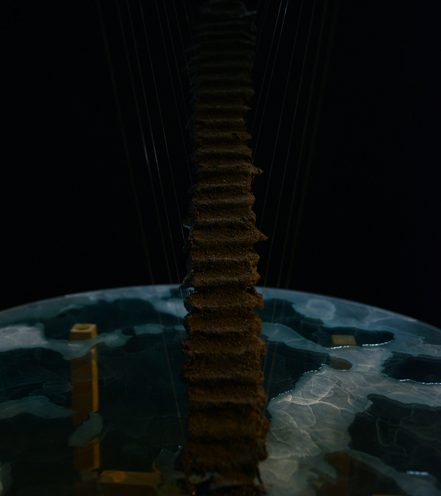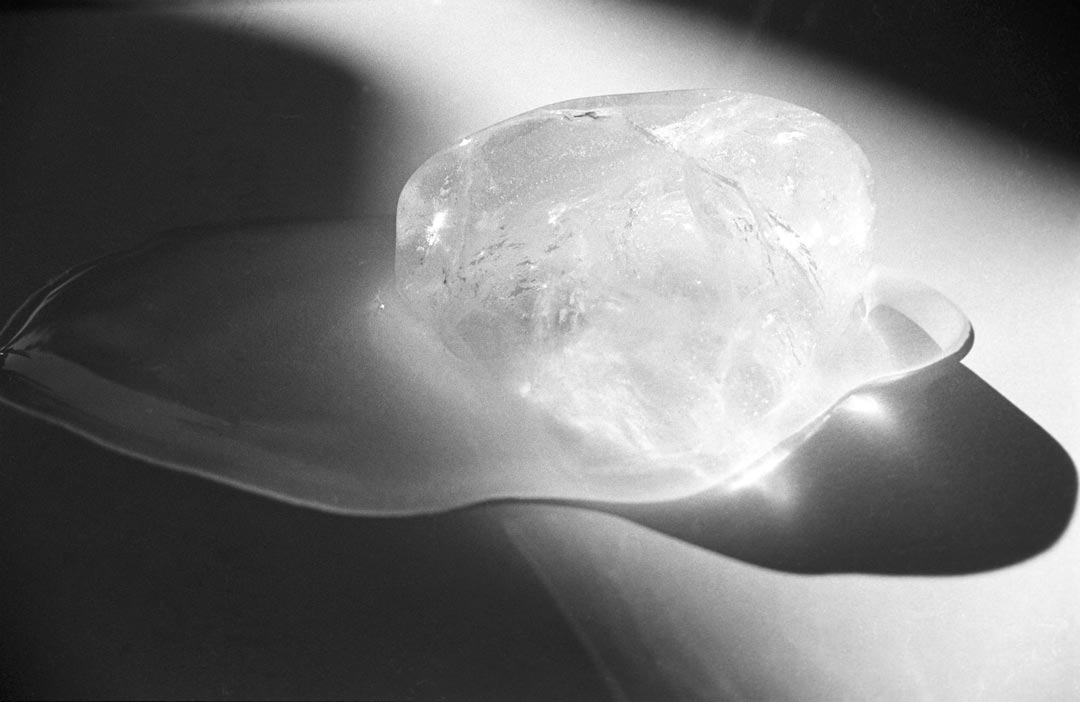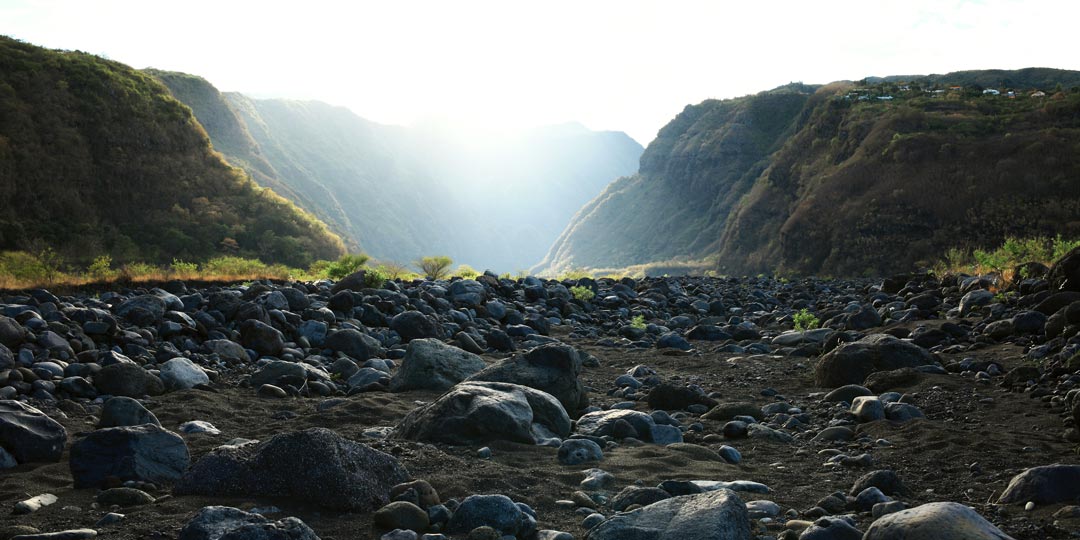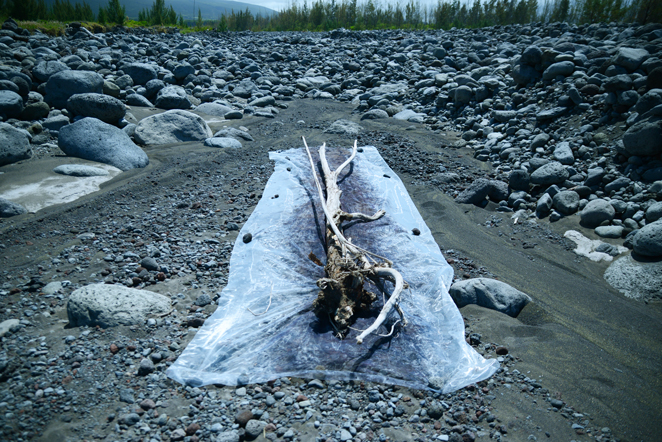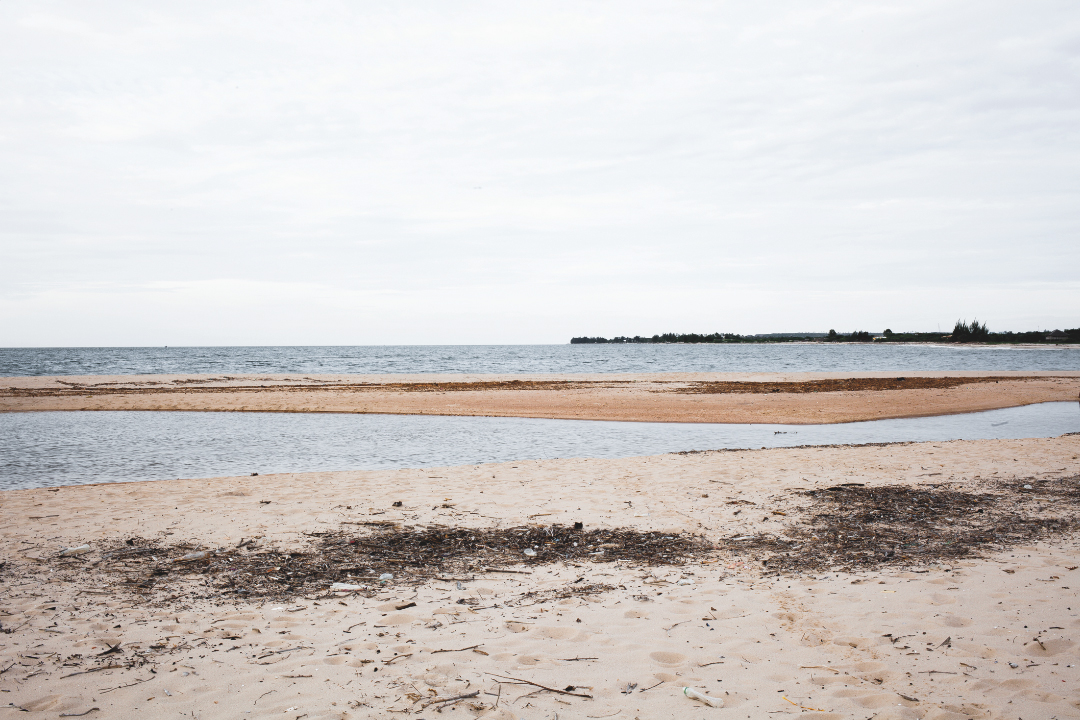Poem dedicated to the Rivière des Galets and to Volcanoes
Now I’m far away from you.
I imagine that a blue pebble.
Part of you is flying to me.
It’s flying so easily, lighted in air
As a key
It’s coming into my mind to open the windows of my memories
A particule of dust
A grain of sand
And a blue sinked lava is coming into my gentle dream
Show me the way to touch the most difficult place
How to reach the most beautiful place
River’s mother, Pebble’s father you know
I need a place to be an artist
I need a place to be a poet
I need a place to create
Not a great place, not a famous place but the same place of a particul of dust
The same place of a grain of sand
Just a small place to make dreams as wide than the blue Mountain.
Viewpoints on waterscape
My experience with the Rivière des Galets
first led me to question my living environment,
and later to deepen my understanding of the River’s interconnections
with the living, non-living and invisible worlds.
To make the Maas River Fly
Precarious territories:
Madagascar, la Réunion
This instability of the soil and fragility leads me to redefine and represent the various manifestations of precariousness. The question of collapse, or rather crumbling, the loss of matter, speaks of erosion and entropy. Let’s not forget that Madagascar is nicknamed the Red Island, and seen from the sky, from space, it seems to be bleeding. I also see in it an analogy with the wound, here it seems incicatrisable.
Territoires précaires, Madagascar, a research project supported in its first phase by the Ministère de la Culture, Direction des affaires culturelles de La Réunion. The photographic works were included in the exhibition L’Antropocène et Après? by Nathalie Gonthier and Paul Ardenne at the Cité des Arts de la Réunion.
Observing the landscape is not a trivial or passive act, as Evelyne Toussaint reminds us with Yto Barrada’s works (on the domestication of spaces in Tangier), where the landscape is necessarily the site of politics, bearing the mark of daily power, hegemony and resistance. This phrase resonates with my status as an observer at Mahajunga, which questions the relationship between representation and reality. The landscape is a morpho-pedological place, sensitive to history, politics and living beings.



